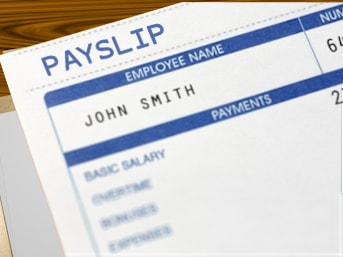|
What is the Unemployment Insurance Fund and how does it work?
The Unemployment Insurance Fund is a fund to which employees and employers contribute on a monthly basis. The employee contributes 1% of their gross salary and the employer also contributes 1% of each employees’ salary. The fund is there to provide temporary financial relief to employees who find themselves without a job. This applies to all employees except for the following:
“Employees can claim up to 60% of their previous earnings but this is limited to a maximum amount of R14 872.Another great benefit is that expectant mothers who work for companies that don’t offer paid maternity leave can claim UIF benefits for four months,” says Jetro Malapane from the South African Payroll Association. After changes have been made to the Act, benefits for 10 days unpaid parental leave (for new fathers or a parent of an adopted child) can also be claimed. Beneficiaries of a deceased spouse or parent are also allowed to claim benefits, subject to certain conditions. What are the most important things employees need to know about UIF? Employees need to ensure that the correct amount is being deducted from their salaries, so it is a good idea to calculate the 1% of your gross salary and making sure it agrees to the amount on your pay slip. Employees earning higher salaries (above the threshold of R14 872 per month or R178 464 annually) need to check that the maximum contribution of R148.72 is being deducted from their salary. The Unemployment Insurance Benefit pays the first 238 days at a rate between 38 – 60% and then from 239 to 365 days at a flat rate of 20%. It is important to know that if you resigned from you position you can not claim UIF benefits. “Whenever you leave a position, it is of high importance that you obtain your UI 19 form from your employer, whether you will be able to claim or not, as the Department of Labour need to keep track of your contributions and claims, “according to Jetro. The bill allows employees to apply for maternity leave benefits eight weeks before delivery and up to 12 months after birth, on a flat rate for maternity benefits (66% of a woman's salary). It also allows women who have lost their child in the last trimester qualify for maternity benefits and provide that a contributor (Male or Female) is entitled to illness benefits if the days of illness are seven days. Another change to take note of is that the period you can claim benefits for has been extended from 6 months to 12 months. As well as providing for extension of benefits to those previously excluded i.e. Learner ships, Foreign Nationals and Civil Servants. What are the responsibilities of employers regarding UIF Employers need to familiarise themselves with the changes made to the Unemployment Insurance Act, namely the amendments made by Labour Laws Amendment Act 10 of 2018. It is of great importance that employers calculate the contributions from themselves and the employees correctly. They should make sure that they are 100% compliant with the rules of UIF, in order to make sure that when the time comes employees will be able to claim their benefits when and if the time comes. Declarations and payments must be made on the 7th of every month, or the last Friday before the 7th if it falls on a weekend. ENDS MEDIA CONTACT: Rosa-Mari Le Roux, 060 995 6277, [email protected], www.atthatpoint.co.za For more information on SAPA please visit: Website: http://www.sapayroll.co.za/ Twitter: @SAPayroll LinkedIn: The South African Payroll Association
0 Comments
Leave a Reply. |
Welcome to the South African Payroll Association newsroom.
Archives
July 2020
Categories
All
|


 RSS Feed
RSS Feed